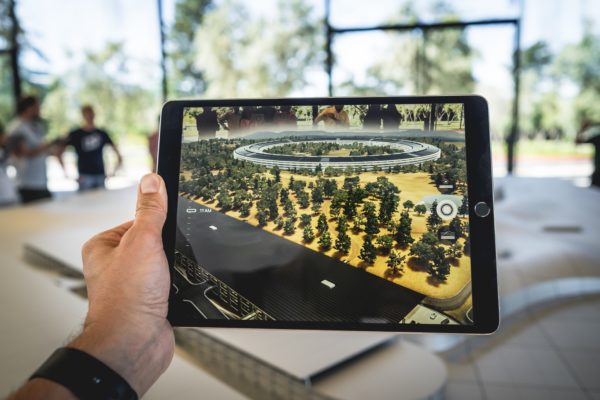Thanks to breakthrough Deakin research, the University and LeMond Composites have joined forces in a $58 m deal to revolutionise the use of carbon fibre across the world.
The partnership, signed today by Mr Greg LeMond – three-time Tour de France winner and the founder and CEO of LeMond Composites – and Deakin University Vice-Chancellor Professor Jane den Hollander AO, allows LeMond Composites to license new technology from Deakin’s world-leading carbon fibre research centre, Carbon Nexus.
The technology, developed by Carbon Nexus PhD student Maxime Maghe and Carbon Nexus General Manager Steve Atkiss, has the potential to reduce the energy used in carbon fibre production by 75 per cent and reduces the production process time from around 80 minutes to under 15 minutes.
In addition, the specialised carbon fibre production machinery required is expected to cost around 50 per cent less than current equipment. The smaller equipment footprint makes possible a 70 per cent reduction in the size of a carbon fibre processing plant.
Mr LeMond said it was difficult to fully grasp the global impact the technology would have on consumers.
[testimonial_text]What Deakin and Carbon Nexus have invented here will feed the world with low cost carbon fibre and help make carbon fibre available to the masses, this could make Geelong the new composite valley.[/testimonial_text]
[testimonial_picture name=”Mr Greg LeMond” details=”Founder and CEO of LeMond Composites”]
 [/testimonial_picture]
[/testimonial_picture]LeMond Composites will also consider the development of a carbon fibre manufacturing plant in Geelong, which would invest more than $30 million in construction and equipment and create dozens of jobs for Geelong manufacturers to take the carbon fibre of the future to the global market.
Victorian company and Carbon Nexus’ long-term industry partner Furnace Engineering will benefit from the deal as the manufacturer of the specialised machinery required.
The globally unique, $34 m Carbon Nexus research facility was established in 2014 with support and investment from Deakin and all levels of government. Today’s announcement at the facility was attended by representatives from the State Government, the City of Greater Geelong and Geelong’s industry and business groups, including G21 and the Chamber of Commerce. Former Federal Minister the Honourable Simon Crean, Chair of Deakin’s Advanced Manufacturing advisory group, also spoke at the event.
The University’s Chancellor Mr John Stanhope AM said the partnership between Deakin and LeMond Composites demonstrated how Deakin research could be leveraged to benefit the Geelong region and beyond.
[testimonial_text]Realisation of jobs and growth comes from the conversion of research and technological innovation into commercial outcomes. Deakin is in the innovation business and that means we’re in the jobs business as well.[/testimonial_text]
[testimonial_picture name=”Mr John Stanhope AM” details=”Deakin University Chancellor”]
 [/testimonial_picture]
[/testimonial_picture]Prof den Hollander said the new technology was a game-changer for the future of manufacturing.
“We know carbon fibre has been in use in aircraft, high-end cars and bikes, among other applications, for a long time now, but it remains a niche product that costs a significant amount to produce.
[testimonial_text]This new technology could revolutionise the advanced manufacturing sector locally, across Australia and around the globe, because it will make carbon fibre more affordable to produce, which will make it more accessible for consumers. This is a huge global success story and it was incubated in our Geelong Future Economy Precinct by one of our very own future leaders – a PhD student working under the guidance of our gifted leadership in carbon fibre research.[/testimonial_text]
[testimonial_picture name=”Professor Jane den Hollander AO” details=”Deakin University Vice Chancellor”]
 [/testimonial_picture]
[/testimonial_picture]“Australia has a rich history in innovation, but much of it falters before commercialisation. With this partnership, we’re reversing that cycle. We’ve shown that we can nurture new ideas through to commercial outcomes.”
Carbon Nexus Director Derek Buckmaster said the agreement with LeMond Composites was the first time Carbon Nexus technology had been licensed.
“Over the past three years, we have conducted many commercial research projects for external clients, as well as conducting our own fundamental research into understanding the chemical reactions that take place during the carbon fibre production process, with the aim of accelerating the reactions while reducing the energy required.
[testimonial_text]Maxime Maghe and Steve Atkiss made a breakthrough discovery when they identified the significant factors controlling the reactions, allowing them to optimise the chemistry and accelerate the production process.Optimised equipment designs based on the new process have also resulted in a significantly smaller footprint for future carbon fibre production lines. The smaller ‘fibre reactor’ equipment consumes significantly less energy than standard oxidation ovens and offers the potential to reduce capital costs and labour costs for carbon fibre production.[/testimonial_text]
[testimonial_picture name=”Derek Buckmaster” details=”Director of Carbon Nexus”]
 [/testimonial_picture]
[/testimonial_picture]Mr LeMond, who in 1986 became the first cyclist to win the Tour de France on a carbon fibre bike, has been a household name among cyclists for three decades, selling carbon fibre bikes under his own brand around the globe. He established LeMond Composites last year to realise his vision of affordable carbon fibre bicycles for everyday riders.
Mr LeMond said the ability to scale-up low-cost carbon fibre production had been the biggest hurdle to bringing the material to the masses.
“Deakin University’s manufacturing process will make it possible to localise manufacturing and make carbon fibre technology more accessible to a wider range of industries like transportation, renewable energy and infrastructure or any industry that benefits from using lighter, stronger, safer materials,” he said.
Prof den Hollander said the scope for future growth of Deakin and LeMond’s partnership had potential to help transform the future for Geelong.
“We all know that Geelong’s reliance on manufacturing has changed and the future will be driven by high-value advanced manufacturing,” Prof den Hollander said.
“Deakin is passionate about supporting the communities we serve, working collaboratively with industry and relevant business and governments to drive forward solutions to the challenges our region is confronted with, which is why we have been heavily involved in supporting Geelong’s transition through projects like Carbon Nexus.
“Our University has played a key role in finding these solutions, leveraging off our world-class research, infrastructure, and industry and government partnerships. I am delighted to now work with Greg LeMond and his team to help find a way that helps Geelong lead the world.
“Just three months ago, Deakin joined with the City of Greater Geelong and G21 to launch “Geelong Economic Futures,”” a blueprint for a number of projects that included scope for development to help lead this city’s future. Carbon fibre development was a key project highlighted, so it is pleasing to see an important part of this vision come to fruition.”
Published by Deakin Research 21 June 2017.






